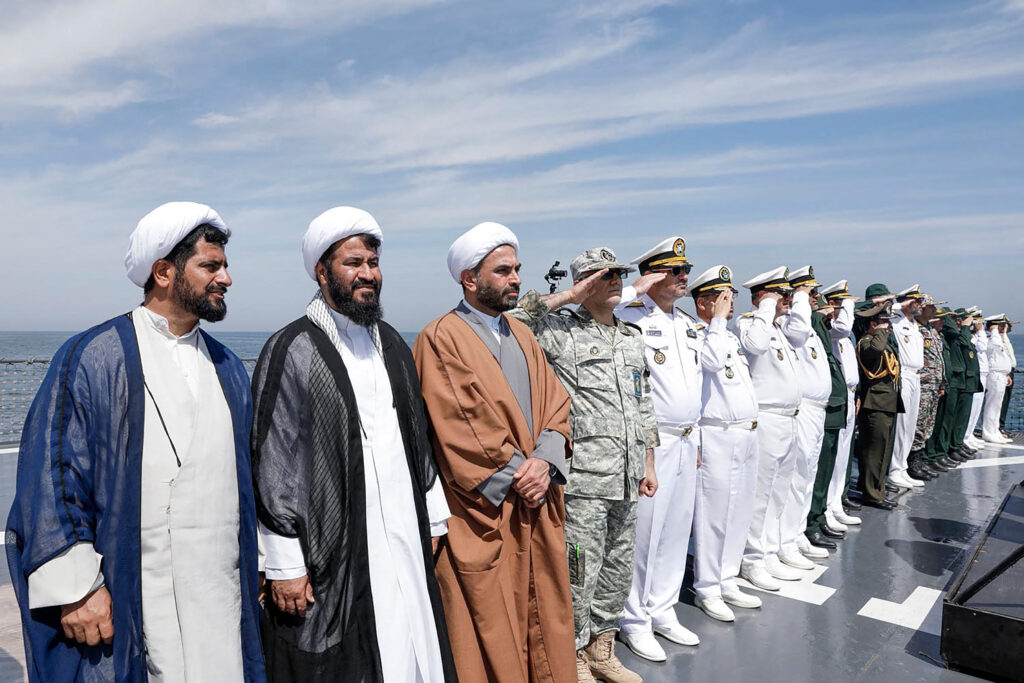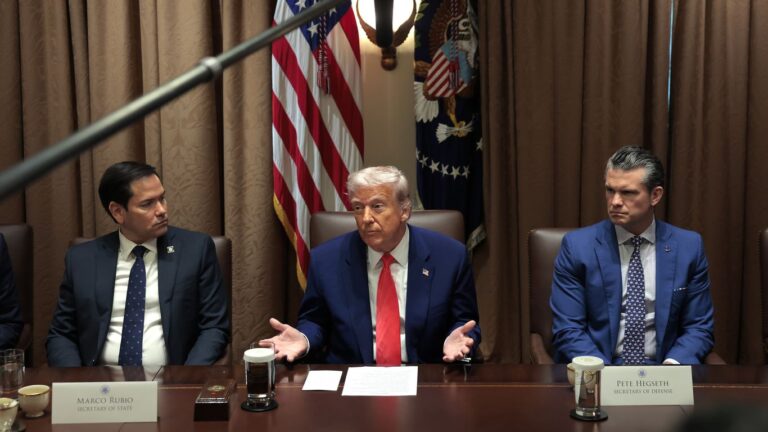
A senior Iranian leader issued a stark warning to the United States, threatening to target U.S. military bases in the region if any strikes are carried out against Iran, marking an escalation in rhetoric as tensions between the two nations intensify.
Newsweek has reached out to the U.S. State Department for comment.
Why It Matters
The comments from Parliament Speaker Mohammad-Baqer Qalibaf highlight Iran’s position amidst escalating tensions with the United States.
The latest exchange of threats comes after deadly U.S. airstrikes against Iran-backed Houthis in Yemen and with growing U.S. concerns over Iran’s nuclear program that have fueled fears of a broader conflict. U.S. President Donald Trump has instigated a “maximum pressure” campaign against Iran.

Photo by Iranian Army Office / AFP/Getty Images
What To Know
The parliament speaker said on Friday that if the United States follows through with military threats against Iran, U.S. allies and American military bases in the region will become targets, state news agency IRNA reported.
“If they threaten Islamic Iran, then, like powder kegs, America’s allies in the region and U.S. bases will be made unsafe,” he said.
He added that negotiating under pressure and threats would equate to surrendering to the other party’s demands, “which would be a prelude to war, which no nation would accept,” in a message at Tehran University on International Quds Day — an annual pro-Palestinian and anti-Israel event which takes its name from the Arabic name for Jerusalem: al Quds.
Iran has accused the United States of being a “bully” because of its stepped up pressure. Tehran rejected direct talks in its response to a letter from Trump, but did not rule out indirect talks.
What People Are Saying
Parliament Speaker Mohammad-Baqer Qalibaf, as quoted by IRNA: “If they threaten Islamic Iran, then, like powder kegs, America’s allies in the region and U.S. bases will be made unsafe.”
Director of National Intelligence Tulsi Gabbard: “The IC continues to assess that Iran is not building a nuclear weapon and Supreme Leader Khamenei has not authorized the nuclear weapons’ program that he suspended in 2023.”
Trita Parsi, Executive Vice President at Quincy Institute, told CNN: “The Iranians are trying to disabuse Trump from the belief that they are so weak that capitulation is actually on the table.”
What Happens Next
With the U.S. increasing its military presence in the Persian Gulf and Indian Ocean, and Iran strengthening its missile defenses around the Strait of Hormuz, heightened military activity raises the risk of further escalation.


